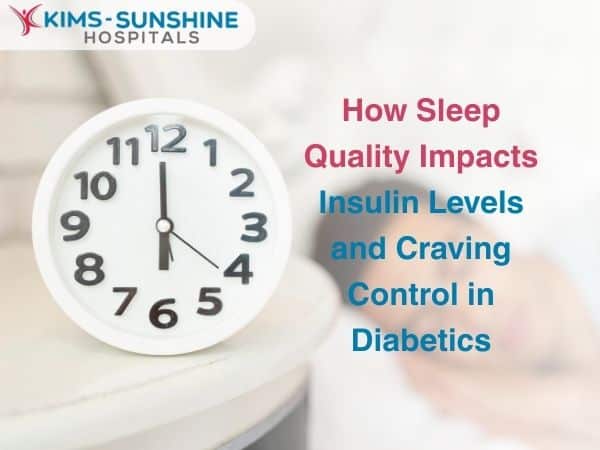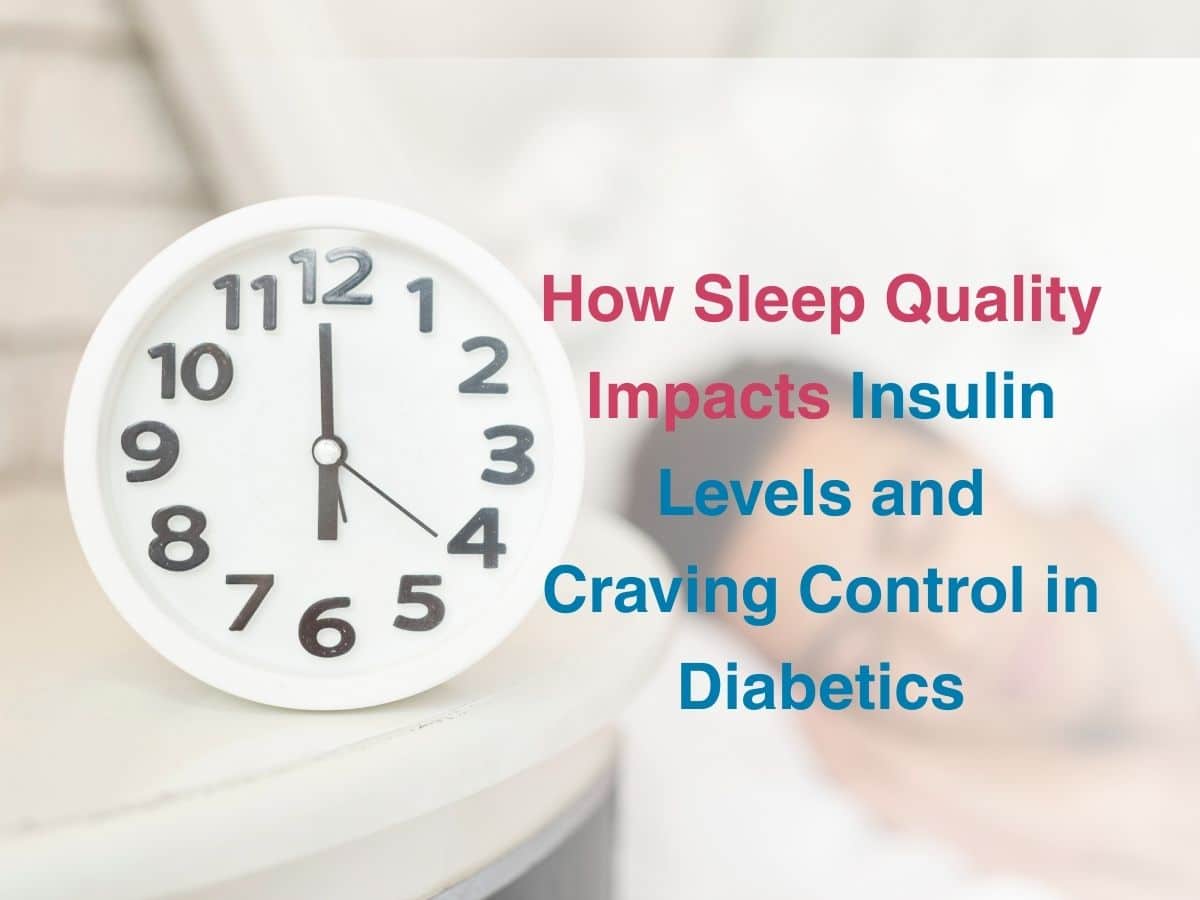
How Sleep Quality Impacts Insulin Levels and Craving Control in Diabetics

Sleep, which many of us treat as a negotiable luxury in a world that rarely slows down, quietly choreographs countless metabolic processes. In diabetics, this nightly choreography becomes even more crucial because every hour of missed rest nudges insulin sensitivity downward, a phenomenon highlighted in a study published in The Lancet, where researchers noted that “short sleep duration is associated with impaired glucose tolerance”. This crucial finding has rippled into diabetes care guidelines across the world, especially because Indian adults, often juggling late working hours, erratic dinner times and high stress, face a cultural pattern of insufficient sleep that steadily burdens pancreatic function, reshapes hormonal balance and moulds a metabolic landscape that becomes increasingly resistant to insulin over time.
Poor Sleep And Blood Sugar Levels
There is something almost poetic in the way blood sugar rises quietly through the night when sleep is disturbed, as though the body is trying to stay alert for threats that do not exist. This biological vigilance pushes glucose levels upward, a relationship documented in a landmark study in Diabetes Care, which observed that “fragmented sleep predicts higher fasting glucose even in individuals without diabetes”. This relationship becomes highly relevant in Indian diets rich in refined carbohydrates, since the combination of high glycaemic meals and disrupted sleep can create a dawn period where glucose peaks arrive earlier, last longer and respond poorly to morning insulin therapy, setting the tone for a day spent chasing metabolic stability.
Circadian Rhythm And Glucose Metabolism
The circadian rhythm, often described as the body’s internal clock, guides hormonal pulses, cellular repair and glucose processing with remarkable precision. When it is disrupted by late dinners, irregular sleep hours, shift work or incessant screen exposure, glucose metabolism becomes sluggish and unpredictable, a concept reinforced by research in The Journal of Clinical Endocrinology and Metabolism, where scientists noted that “circadian misalignment reduces insulin sensitivity independent of sleep duration”. These findings suggest that in India, where late night routines are common, maintaining a consistent sleep window may be as metabolically protective as being on the right diet or taking prescribed medication.
Sleep Apnoea And Insulin Resistance Link
Sleep apnoea, which often goes unrecognised in many Indian adults, particularly those with central obesity, creates repeated drops in oxygen levels through the night. These micro episodes of stress activate inflammatory pathways that sharply increase insulin resistance, a relationship documented in the Chest Journal, which states that “the severity of obstructive sleep apnoea is independently associated with impaired glucose homeostasis”. Understanding this link can be transformative, since treating apnoea often leads to measurable improvements in fasting glucose, post-meal spikes and overall diabetes management.
Conclusion
A supportive nighttime routine becomes a gentle bridge between wakefulness and rest and may include herbal teas that ease digestion, quiet meditation that steadies cortisol levels, light stretching that calms the nervous system and reflective journalling that loosens mental knots. Each of these seemingly simple habits can soothe the body into a metabolic rhythm where glucose fluctuations soften, cravings diminish and insulin sensitivity slowly but surely renews itself across weeks of consistent practice.






